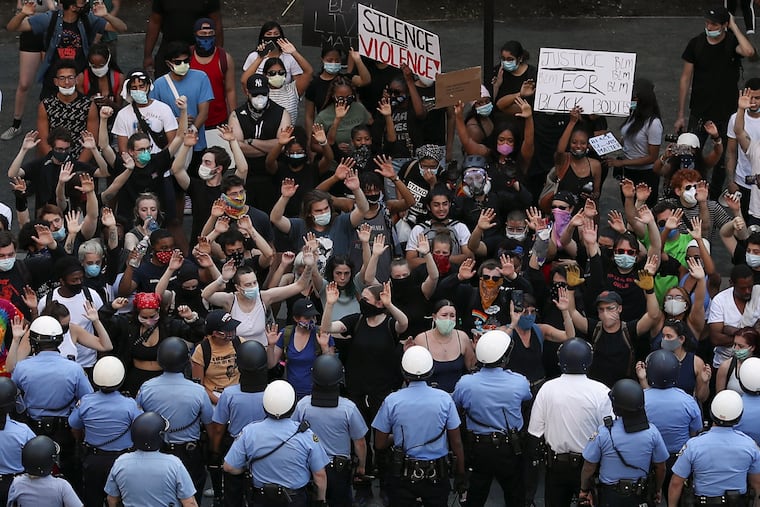Abolish police? No, but change recruitment. | Opinion
Policing must become a group whose members are recruited and valued for their nonoverlapping experiences, perspectives, and cultural histories.

I’ve seen many calls to “abolish” the police. And though it’s a sentiment I can understand, I also believe that policing remains a critical public institution. But in order to become better, it needs to become smarter. George Floyd’s death is, in part, a result of a fundamental flaw in American policing — one that is so ingrained as to be virtually invisible.
For generations, policing has been a club. One that represents a narrow slice of American society.
Applicants are “screened” out by the civil service test, a background investigation, and the oral board interview — all of which are designed to exclude people who may have experienced personal and/or economic hardships. Requirements are often so restrictive that they favor young adults who have not yet accumulated many adult life experiences. As a result, they often have difficulty empathizing with people and tend to engage in career-ending misconduct at high rates, very quickly into the job.
» READ MORE: Here's live coverage of what's happening June 8
So who gets to join the club?
Mission-oriented people who are comfortable following and enforcing rules, enjoy solidarity with their peers, and who are trained and socialized by the gatekeepers. In hiring “themselves,” policing as an institution has created a self-perpetuating cycle that values control, enforcement, and authority — over the protection of life — as its primary mission.
This recruitment paradigm and the mentality it promotes didn’t create Derek Chauvin, but it brought him into policing. And in Minneapolis (as it does in other cities), the system fostered and protected his behaviors; it encouraged at least three officers to stand by and watch as Chauvin drove his knee into George Floyd’s neck for more than eight minutes — contradicting a 20-year knowledge base describing the risks of positional asphyxia when suspects are neck-restrained in a prone position.
Policing must become a group whose members are recruited and valued for their nonoverlapping experiences, perspectives, and cultural histories.
The Minneapolis Police Department, as part of its 2016 use of force reform efforts, passed a “peer intervention” policy, yet bystanding officers still did nothing to stop Chauvin.
This failure to intervene likely happened because policing is not kind to officers who break with the long-standing cultural norm of not intervening when peer officers are doing something wrong. The so-called “blue wall of silence” discourages officers from testifying against each other in criminal trials and encourages “testilying” — i.e., committing perjury to cover up officer misconduct.
Policing must become a group whose members are recruited and valued for their nonoverlapping experiences, perspectives, and cultural histories. This can be done by emulating the “smart swarm,” a model based on the concept called the “difference” principle, which asserts that groups are better at solving problems and making predictions when they are highly diverse.
» READ MORE: The police that Philadelphia deserves | Editorial
A smart swarm flourishes and solves problems precisely because of the differences between the individuals in the group. It does not succumb to groupthink because the independence of thought among its members does not allow for it. This is the opposite of the command-and-control model that currently dominates American policing and drives officer recruitment.
By transitioning its recruitment paradigm from one that screens out to one that strives for inclusion and a diverse applicant pool, policing can become a smart swarm.
Police may tell us they need to screen out undesirable applicants to protect against misconduct. But how did the screening out paradigm protect George Floyd, Eric Garner, Freddie Gray, or Michael Brown? How has it protected the countless young black men subjected to illegal stop-and-frisk contacts?
It’s time to change the trajectory of American policing. Changing the recruitment paradigm is one step in the right direction.
Robert J. Kane is a professor and head of the department of criminology and justice studies at Drexel University and the co-author of “Jammed Up: Bad Cops, Police Misconduct, and the New York City Police Department.” @rjohnkane